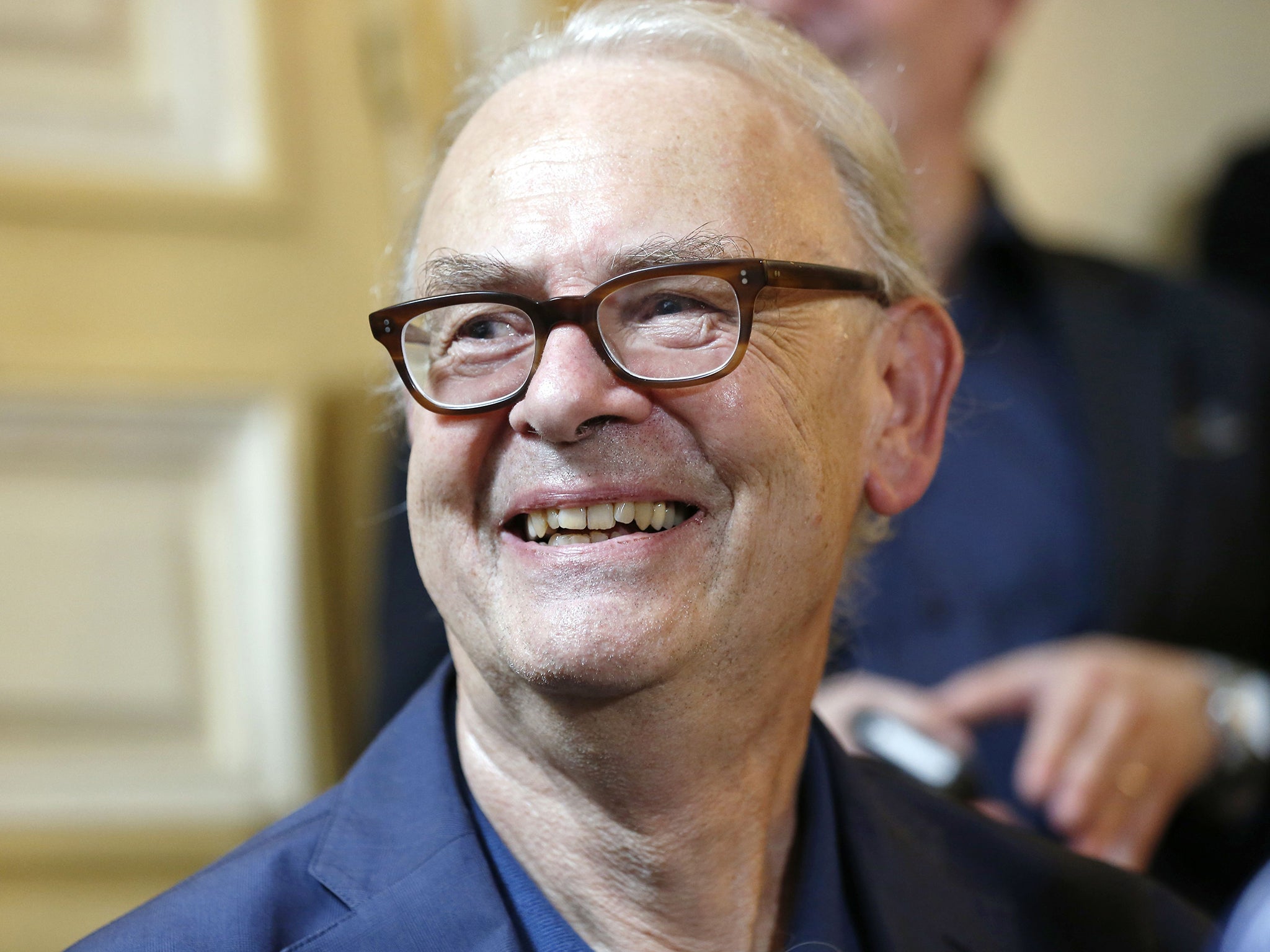Suspended Sentences by Patrick Modiano, book review: A reanimation of times past
Modiano is as accessible as he is engrossing

The award of the 2014 Nobel Prize in Literature to French author Patrick Modiano took plenty of people by surprise, not least his publishers, and these three novellas – all appearing in English for the first time – have been hurried out as a result.
In fact they are an excellent introduction to the writer, not least because they show quite how much he treads and retreads the same territory.
The overlaps and repetitions between the three stories – and Modiano’s other books – are so obvious that they can only be deliberate, though the author himself points to a more pathological cause. In his introduction, his translator Mark Polizzotti quotes him as saying he writes his books “in successive bouts of forgetfulness”, which as an explanation is cute, rather than convincing.
Told briefly, the blueprint for a Modiano story involves multiple overlaid time frames: the present day, during which the narrator is remembering and investigating the other strands; the post-war decades, when he was a child, teenager or young man, and came into contact with various elements of the demi-monde; and the war and pre-war years, when some crime, or disappearance, took place.
In all of this, people and places once lost are made to live again, though faintly and flickering, as in an old print of a film noir: “In the late-afternoon light, it seemed to me that the years had become conflated and time transparent,” the narrator sighs, in one story, while in another he notes: “Today the air was light, the buds had burst on the trees in the gardens of the Observatoire, and the month of April 1992 merged by an effect of superimposition with the month of April 1964.”
In “Afterimage” we have the narrator’s memories of lapsed photographer Francis Jensen, whom he knew as a young man, and whose personal archive he undertook to catalogue, while trying to work out why he had turned so resolutely away from life. The other two stories, “Suspended Sentences” and “Flowers of Ruin”, circle around “the Rue Lauriston gang”, a set of criminals whose black market dealings, during the Occupation, bled into dirtier work on behalf of the Gestapo.
“Suspended Sentences” is the liveliest offering, a childhood memoir in which young Patoche is palmed off by his parents onto a surrogate family of loveable freaks in a town outside Paris. Life there is immeasurably enlivened by the strange “friends of the family” who swing by in expensive American cars for clandestine meetings, or to whisk them all off for suspicious jaunts around Paris.
“Flowers of Ruin” is darker, and starts from an anecdote about a young married couple, living in Paris, who committed suicide “for no apparent reason” in 1933, after an evening partying with two other, more dubious couples. The narrator, thinking back to his own teenage years in Paris in the 1960s, wonders if the people he knew then might offer some connection back to that “tragic orgy”.
These two novellas include mention of the real life event, so central to Modiano’s life story, when his father was arrested during the war as a Jew. Here, the father is released on the say-so of one the gang, Eddy Pagnon, who, we learn, was shot after the Liberation as a collaborator. It is that awareness of his personal proximity to the darkest hours of French history that haunts Modiano’s work, and breeds its tone of ambivalence – and, in the end, justifies its obsessive repetitions.
For all the weightiness of his subject matter, however, Modiano’s style is absolutely clear and uncomplex. It is as if a writer like Georges Simenon – who himself strayed rather too close to the German authorities during the war – found himself struck with the preoccupations, and moral insight, of WG Sebald. You can see why he appealed to the sensibilities of the Nobel committee, but readers shouldn’t be daunted by the accolade. Modiano is as accessible as he is engrossing.
Join our commenting forum
Join thought-provoking conversations, follow other Independent readers and see their replies
Comments
Bookmark popover
Removed from bookmarks